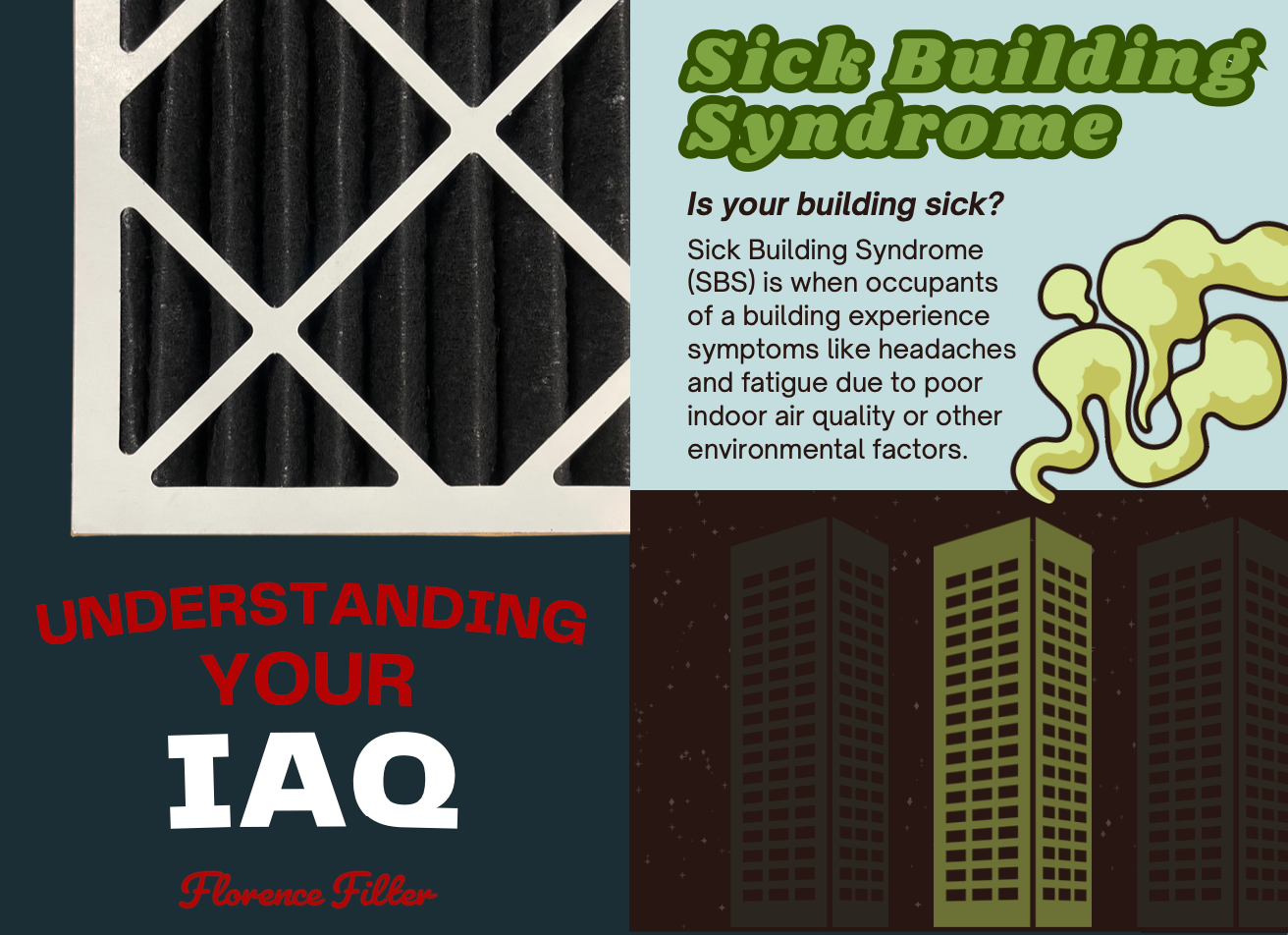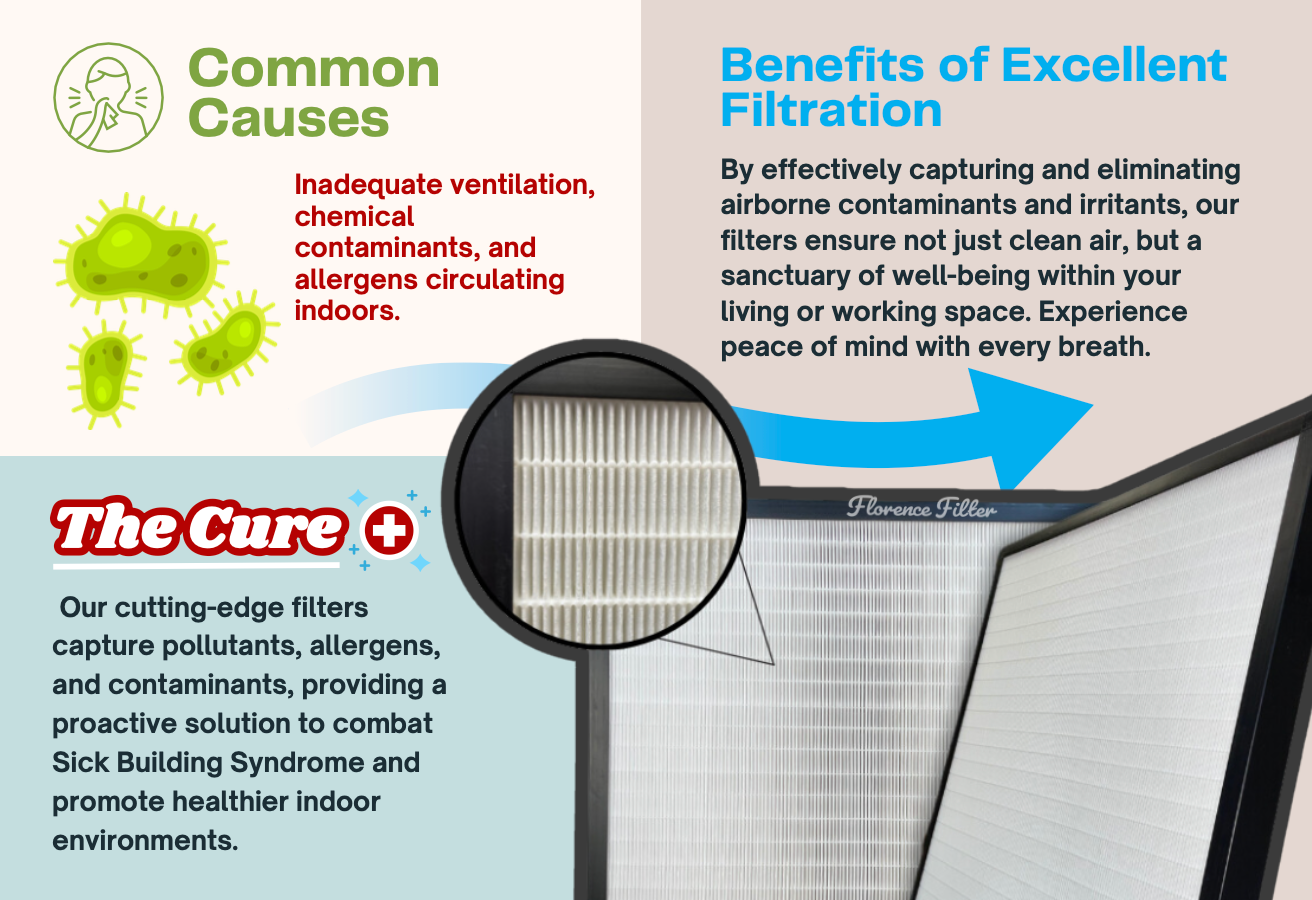What is Indoor Air Quality?
IAQ refers to the condition of the air inside buildings and structures such as the home or workplace. Various factors such as pollutants, humidity levels, temperature, ventilation, and air circulation can impact IAQ as well as the health and comfort of occupants.
Common sources of indoor air pollutants include building materials, furniture, cleaning products, smoking, cooking, and outdoor pollutants that infiltrate indoors.
Importance of IAQ
Poor IAQ can lead to a range of health issues, including respiratory problems, allergies, asthma exacerbation, headaches, fatigue, and more. Prolonged exposure to poor IAQ may result in chronic health conditions and reduce overall life expectancy.
Good IAQ enhances productivity and comfort levels among occupants, leading to improved performance in workplaces and better quality of life at home.
According to a Building Occupant Survey Report* conducted by Honeywell in 2023,
- More than half of surveyed U.S. office workers (53%) are very or extremely worried about their building's indoor air quality – nearly twice the 28% who expressed concern in 2022’s results
- Two-thirds (67%) of surveyed U.S. office workers strongly agree that the quality of the air they breathe has a direct impact on their health and well-being
- Nearly all respondents (95%) say their expectations for improved indoor air quality (IAQ) have increased in the past three years
- An overwhelming majority of surveyed U.S. office workers (88%) agree that limiting investment in IAQ technology shows a low commitment to employee safety and well-being
The significant increase in awareness of IAQ, coupled with the acknowledgment of its direct impact on health and well-being, underscores the pressing need for employers and building managers to prioritize IAQ management and meet the expectations of their workforce.
Factors Influencing IAQ
Indoor air can be contaminated by a multitude of pollutants, including:
- Particulate Matter: Microscopic particles suspended in the air, such as dust, pollen, and smoke
- Volatile Organic Compounds (VOCs): Chemical compounds emitted from various sources such as building materials, furnishings, and cleaning products
- Carbon Monoxide: A colorless, odorless gas produced by incomplete combustion of fuel-burning appliances, which can lead to carbon monoxide poisoning and pose serious health risks
- Excess moisture in indoor environments can promote mold growth, which not only deteriorates building materials but also poses health risks by releasing allergens and potentially toxic substances into the air
Maintaining optimal humidity and temperature levels is essential for reducing allergens by mitigating the proliferation of dust mites, mold spores, and other irritants which can trigger allergic reactions and exacerbate respiratory conditions. Properly designed ventilation systems help reduce the concentration of harmful contaminants, contributing to healthier indoor air and occupant well-being.
Strategies for Improvement
Source Control: Minimize or eliminate indoor pollution sources through proper storage, ventilation, and the use of eco-friendly cleaning products.
Invest in High-Quality Air Filtration Systems: Upgrade your existing HVAC systems with our cutting-edge air filtration technologies. Our advanced filters are designed to capture a wide range of indoor air pollutants, including dust, allergens, volatile organic compounds (VOCs), and airborne pathogens, ensuring cleaner and healthier indoor air.
Implement Regular Maintenance Practices: Ensure optimal performance of your air filtration systems by adhering to a regular maintenance schedule. Our team of professionals can assist you in inspecting and replacing filters as needed, maximizing the efficiency and effectiveness of your IAQ management efforts.
Regulations & Guidelines
Various governmental agencies at the federal, state, and local levels establish regulations to ensure acceptable IAQ standards in public buildings, workplaces, and residential properties. Our team stays up-to-date with these regulations, helping you navigate compliance obligations and avoid potential penalties.
In addition to governmental regulations, there are industry-specific standards and certifications that set benchmarks for IAQ management. Whether you're in healthcare, hospitality, education, or manufacturing, we can assist you in meeting the rigorous IAQ standards relevant to your sector. From ASHRAE standards to LEED certification requirements, we have the expertise to guide you through the compliance process.
At Florence Filter, we are dedicated to helping you navigate the regulatory landscape and achieve compliance with IAQ standards and guidelines. Contact us today to learn more about how our expertise and solutions can support your efforts to maintain superior indoor air quality in your facility. Together, we can ensure that your indoor environment is safe, healthy, and conducive to the well-being of all occupants.

